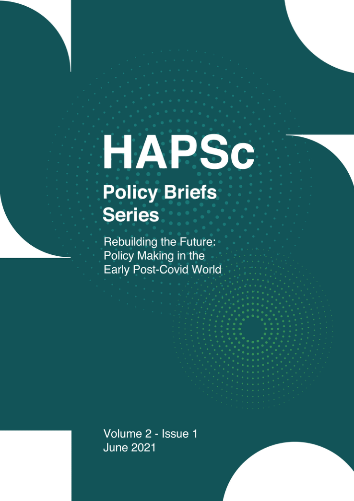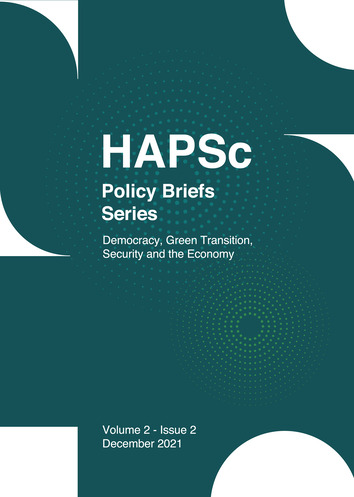The EU Institutional Framework and the Social Dimension Policies: Barriers, Challenges and Prospects
Resumen
The discussion about the role and the forces around the European social dimension is vast, especially when it comes to the multidimensional challenges that exist and the ways they should be addressed. Firstly, it should be noted that the European Union has been constructed upon a minimalist direct involvement in the field of social policy as it is rather considered a matter of the national welfare states (Leibfried, 2015). This does not mean that there was not central or indirect impact on social policy during the decades of the Europeanization process but that the main consequences have been formed indirectly, thus making them also difficult to be measured. At the same time, the European social dimension is a field of policy which has been impacted by the interrelation between politics, law and markets as long as it is formed under the competition between social policy intervention towards market correction and reinforcement of free movement. Specific tools have been created in order to force convergence also in the Europe 2020 framework, but still more effort is necessary in order to force convergence on the social pillar. This paper examines the current challenges in the European Union (EU) social dimension in order to stress the necessity for alternatives towards enhancing European social dimension.
Article Details
- Cómo citar
-
Tzagkarakis, S. I. (2021). The EU Institutional Framework and the Social Dimension Policies: Barriers, Challenges and Prospects. HAPSc Policy Briefs Series, 2(1), 182–188. https://doi.org/10.12681/hapscpbs.27675
- Sección
- Articles

Esta obra está bajo una licencia internacional Creative Commons Atribución 4.0.
Authors retain copyright and grant the journal right of first publication with the work simultaneously licensed under a Creative Commons Attribution License that allows others to share the work with an acknowledgement of the work's authorship and initial publication in this journal.





